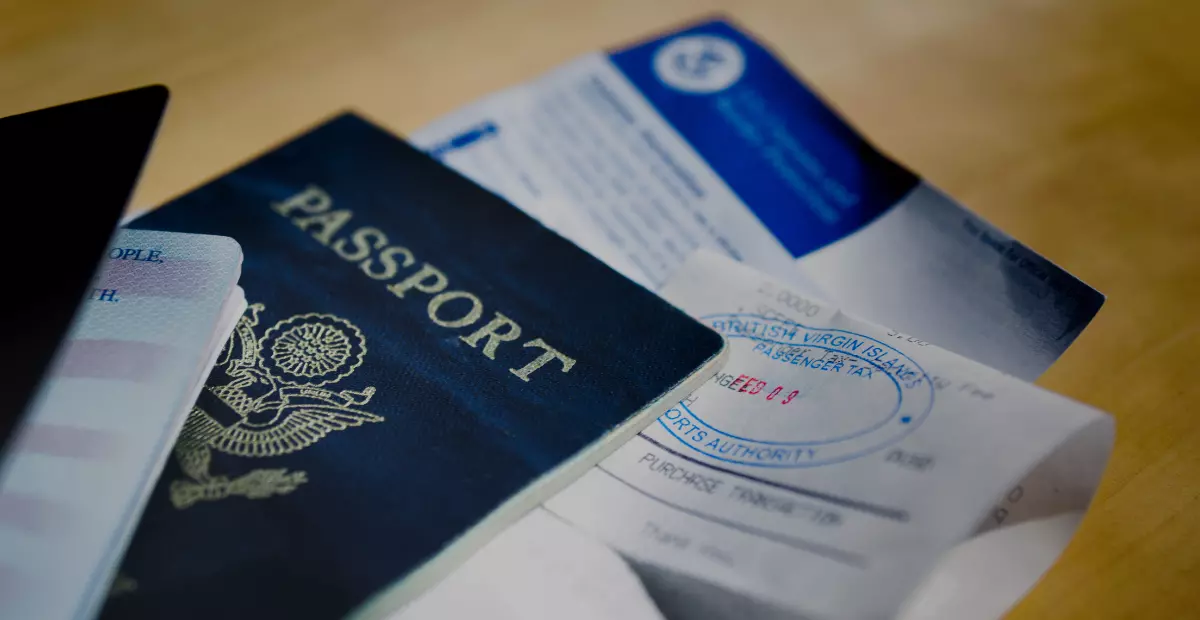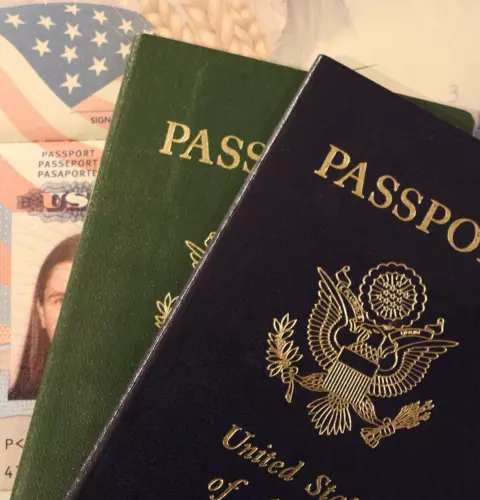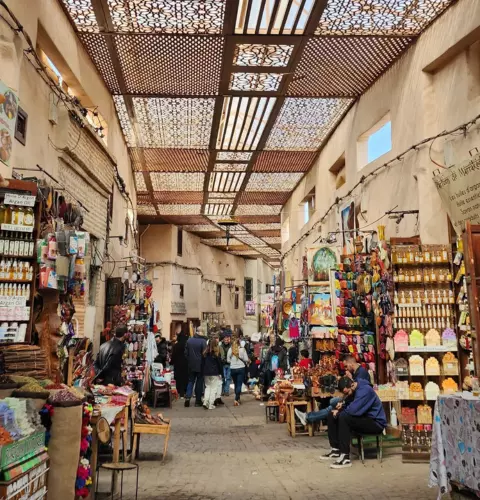
Blog
Morocco Visa Requirements Unraveled – Must Read
Do you want to discover Morocco’s stunning beauty? Are you drawn to the enthralling stories of its rich history and lively culture? Let’s unravel the Morocco visa requirements together before you begin on your vacation to this gorgeous North African treasure, making your travel planning simple and stress-free!
- 1. Introduction
- 2. Do I Need a Visa to Enter Morocco?
- 3. Understanding the Importance of Morocco Visa Requirements
- 4. Different Types of Visas for Morocco
- 5. Morocco Visa Application Process
- 6. Common Visa Application Mistakes to Avoid
- 7. Extending and Renewing Your Visa in Morocco
- 8. Visa-Free Countries for Morocco
- 9. Navigating Cultural Etiquette in Morocco
- 10. Tips for a Smooth Travel Experience in Morocco
- 11. Conclusion
- 12. Frequently Asked Questions (FAQs)
- Plan an Entertaining Moroccan Holiday Now!
1. Introduction
Welcome to the wonderland of Morocco! If you want to visit the breathtaking landscapes, immerse yourself in rich history, and immerse yourself in vibrant culture, it’s time to learn about Morocco visa requirements. This detailed guide will walk you through the difficult procedure, guaranteeing a pleasant and profitable trip.
2. Do I Need a Visa to Enter Morocco?
Before you pack your bags and embark on your Moroccan vacation, you may be wondering if a visa is necessary. The answer is determined by your nationality. Some nations’ citizens may be granted visa-free entrance, while others must request a visa ahead of time. Confirm the visa requirements for your nationality with the Moroccan embassy or consulate in your country.
3. Understanding the Importance of Morocco Visa Requirements
Understanding the relevance of visa requirements is important for every visitor wishing to see the enchanting world of Morocco. A visa is an official document that allows you to enter and remain in Morocco for a particular amount of time and for a specific reason. It is important to follow the visa rules in order to prevent any problems during your trip.
4. Different Types of Visas for Morocco
Morocco provides many types of visas to accommodate varied travel objectives. Familiarize yourself with the many alternatives available so that you may select the one that best matches your travel.
a. Tourist Visa
The tourist visa is ideal for travelers seeking to indulge in Morocco’s stunning beauty, historic monuments, and bustling souks. To apply for a tourist visa, you typically need:
- A valid passport with a minimum of six months validity.
- Completed visa application form.
- Recent passport-sized photographs.
- Proof of sufficient funds to cover your stay.
- Proof of accommodation in Morocco.
- Round-trip flight itinerary.
b. Business Visa
A business visa is required if you want to do business, attend conferences, or participate in meetings in Morocco. Among the requirements might be:
- An invitation letter from a Moroccan company or organization.
- A letter from your employer stating the purpose of your visit.
- Proof of business activities or meetings in Morocco.
- Details of your accommodation arrangements.
- Valid passport and visa application form.
c. Student Visa
A student visa is required for those who want to study in prestigious Moroccan universities. Among the requirements might be:
- An acceptance letter from a recognized educational institution in Morocco.
- Proof of sufficient funds to cover tuition fees and living expenses.
- Medical certificate and health insurance.
- Valid passport and visa application form.
d. Transit Visa
If you have a stopover in Morocco on your way to another location, you may need a transit visa, which permits you to stay in Morocco for a certain period during your layover.
e. Work Visa
Individuals wishing to work in Morocco must apply for a work visa, which involves sponsorship from a Moroccan company and is intended for employees or professionals seeking job possibilities in Morocco.
5. Morocco Visa Application Process
The visa application procedure requires careful planning and attention to detail. To guarantee a smooth application procedure, follow these steps:
a. Gathering Required Documents
Gather all of the documentation required for the visa type you are applying for. Your passport, visa application form, passport-sized pictures, and any supporting papers, such as invitation letters or acceptance letters, are all required.
b. Submitting the Application
Send your completed visa application and accompanying documentation to the Moroccan embassy or consulate in your country. Make sure that the application is carefully filled out and that all necessary information is given.
c. Visa Processing Time
The processing period for a visa varies according to the kind of visa and your nationality. It is best to apply well in advance of your intended trip dates to allow for adequate processing time.
d. Visa Fees
As of September 2021, the Moroccan visa fees varied based on the type of visa and the applicant’s nationality. Here are the approximate visa fees:
- Tourist Visa: The fee for a single-entry tourist visa was around $27 to $50, depending on the applicant’s nationality and visa processing center.
- Business Visa: The fee for a business visa ranged from $27 to $100, depending on the applicant’s nationality and the type of business activities.
- Student Visa: The fee for a student visa was approximately $30 to $60, depending on the applicant’s nationality and the duration of the study program.
- Transit Visa: The fee for a transit visa was generally lower, ranging from $10 to $30, depending on the applicant’s nationality.
Please keep in mind that visa fees are subject to change, so always verify with the Moroccan embassy or consulate in your country for the most up-to-date and correct information.
6. Common Visa Application Mistakes to Avoid
The visa application procedure may be complicated, and minor errors might result in delays or rejections. Here are a few frequent mistakes to avoid:
- Incomplete visa application forms.
- Missing or incorrect supporting documents.
- Applying too close to your travel dates.
- Providing false information or discrepancies in the application.
- Ignoring specific visa requirements for your nationality.
7. Extending and Renewing Your Visa in Morocco
If you want to stay in Morocco beyond the duration of your visa or if you require a visa renewal, you must apply for an extension or renewal before your current visa expires. To avoid problems, familiarize yourself with the processes and conditions for extending or renewing your visa.
8. Visa-Free Countries for Morocco
As of September 2021, Morocco maintained friendly relations with several countries, allowing their citizens to enjoy visa-free entry. Here is a list of some visa-free countries for Morocco:
- Andorra
- Argentina
- Australia
- Brazil
- Canada
- Chile
- China
- Egypt
- European Union (Schengen Area)
- Japan
- Malaysia
- Mexico
- New Zealand
- Russia
- Saudi Arabia
- South Korea
- Tunisia
- Turkey
- United Arab Emirates
- United Kingdom
- United States
Please keep in mind that visa-free regulations might change over time, so check with the Moroccan government or appropriate authorities before organizing your travel. Furthermore, nationals of several visa-exempt countries may face limits on the length of their stay in Morocco.
9. Navigating Cultural Etiquette in Morocco
Understanding and respecting local cultural etiquette is important as you prepare to enjoy Morocco’s treasures. Follow these cultural suggestions to embrace the warm hospitality and enjoy your trip experience:
- Dress modestly, especially in religious sites and conservative areas.
- Greet locals with a friendly “Salam alaykum” (peace be upon you).
- Use your right hand for greetings and eating, as the left hand is considered unclean.
- Remove your shoes before entering someone’s home or a mosque.
- Ask for permission before taking photos of people or religious sites.
10. Tips for a Smooth Travel Experience in Morocco
Follow these useful tips to begin your Moroccan adventure with confidence:
a. Exploring Moroccan Cuisine
Moroccan cuisine is noted for its delicious tastes and distinct combination of spices and smells. Don’t pass up the chance to try traditional meals like tagine, couscous, and pastilla.
b. Dress Code and Local Customs
Dress modestly to respect local customs and traditions, especially in rural locations and religious institutions. Wearing modest dress demonstrates respect for the local culture.
c. Transportation and Safety Tips
Use reliable transportation providers and adhere to safety requirements to ensure a safe and seamless travel experience. Keep your stuff safe and avoid going alone at night.
d. Embracing the Local Languages and Greetings
To interact with the locals and exchange friendly welcomes, learn a few simple Arabic and/or French words. The attempt to communicate in their language is much appreciated and allows you to connect with the Moroccan people.
11. Conclusion
Congratulations! You are now familiar with Morocco visa requirements, allowing you to organize your ideal journey with ease. In this stunning North African jewel, embrace the gorgeous sceneries, immerse yourself in the colorful culture, and make amazing experiences.



12. Frequently Asked Questions (FAQs)
Q. How long does it take to obtain a Morocco visa?
Visa processing times vary depending on the kind of visa and your nationality, and can range from a few days to several weeks.
Q. Can I extend my visa if my travel plans change?
Yes, you may apply for a visa extension before your existing visa expires if you want to extend your stay in Morocco.
Q. Are there any visa-free countries for Morocco?
Yes, Morocco maintains positive relations with a number of countries, enabling people from these nations to enter without a visa.
Q. Is it necessary to learn Arabic or French before visiting Morocco?
While fluency in Arabic or French is not required, learning a few simple words can improve your travel experience and demonstrate respect for the local culture.
Q. What should I wear while visiting religious sites in Morocco?
Dress modestly when visiting sacred places, covering your shoulders and knees as a gesture of respect.
Arhhal
Moroccan Travel Expert
Plan an Entertaining Moroccan Holiday Now!
We can help you fit your stay and experience within your allotted budget.
